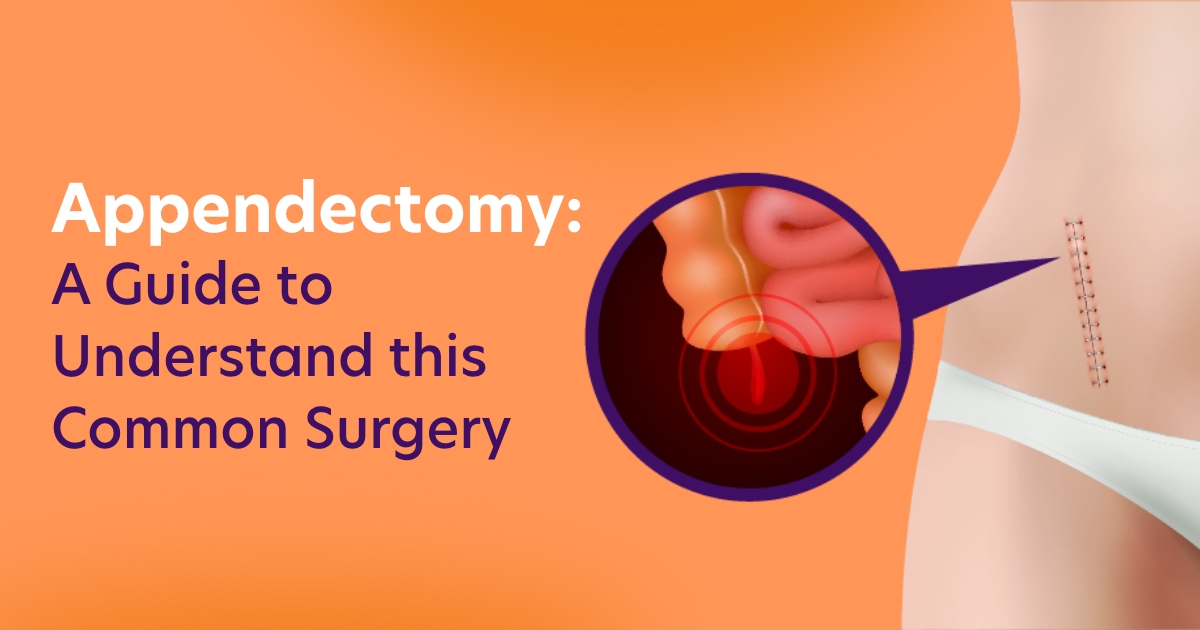
Appendectomy: A Guide to Understand this Common Surgery
Appendicitis is a frequently encountered condition that can occur in individuals across various age groups. It occurs when the appendix, a small, finger-shaped pouch that projects from the colon, becomes inflamed or infected. If left untreated, appendicitis can lead to a ruptured appendix, which can be a life-threatening condition.
The most common treatment for appendicitis is an appendectomy, a surgery to remove the appendix. Appendectomy is usually performed as an outpatient procedure, meaning that you can go home the same day.
In this blog post, we will discuss what happens during an appendectomy, what to expect during recovery, and the risks and complications of the surgery.
What is an appendectomy?
An appendectomy is a surgical intervention performed to eliminate the appendix from the body. The appendix is a small, finger-shaped pouch that projects from the colon, the large intestine. The appendix is not a vital organ, and its removal does not cause any long-term health problems.
Appendectomy is usually performed as an outpatient procedure, meaning that you can go home the same day. The surgery is performed under general anaesthesia, which means that you will be asleep and pain-free during the procedure.
During the appendectomy procedure, the surgeon will create a small incision in the lower right abdomen. Through this incision, the appendix will be carefully removed. The incision will be closed using stitches or staples to promote proper healing.
What to expect during recovery
Following the surgery, it is typical to stay in the hospital for a few hours or overnight for monitoring and recovery. The medical team will provide you with appropriate pain medication to help alleviate any discomfort you may experience during the healing process.
However, it is important to take it easy and allow yourself time to recover over the next few days. It is advised to avoid engaging in strenuous activities and heavy lifting for a minimum of two weeks to promote proper healing.
It is common to experience some side effects following the surgery, including nausea, vomiting, constipation, and gas. These side effects are generally mild and tend to resolve on their own as your body recovers.
Risks and complications of appendectomy
Appendectomy is generally considered a safe procedure with a low risk of complications. However, some possible complications include:
- Bleeding
- Infection
- Injury to other organs or tissues
- Adhesions, which are scar tissue that can form between organs
- Recurrence of appendicitis, although this is rare
Conclusion
In conclusion, appendectomy is a surgical procedure commonly used to remove the appendix in cases of appendicitis. The choice between an open or laparoscopic appendectomy depends on the individual patient and the surgeon's recommendation.
FirstCure Health is dedicated to providing access to the latest and most advanced treatments for appendectomy at affordable prices. Our team of experienced surgical experts is available to address any concerns you may have regarding the procedure. We are committed to ensuring that your needs are met throughout your entire medical journey.
If you need to consult an expert FirstCure Health surgeon near you, please don't hesitate to contact us at 953 8180 300.
Remember, it is crucial to seek immediate medical attention if you experience symptoms of appendicitis. Timely diagnosis and treatment can help prevent complications and promote a speedy recovery.